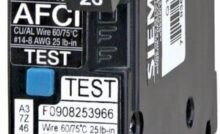How Renters Can Be Sure Electrical Wiring Is Up To Date
Guest Post by: Richard Hubbard
Prospective Renters Can Make Sure Their Apartment Electrical Wiring is Up To Date
When you rent an apartment, prior to moving in, a handyman will usually run through the apartment, throw some fresh paint on the walls, maybe spread some spackle here and there, clear out the sink drains and basically double check that everything works as promised.
But, the handyman will only go so far. In fact, most of the repairs performed prior to move in are cosmetic in nature. Odds are, the apartment complex’s JOATMON (Jack-of-All-Trades-Master-of-None), will not worry about the apartment’s electrical wiring, which in reality should be one of the primary concerns. Therefore, it’s up to you, dear renter, to make sure your apartment’s electrical wiring is up to date. Even though you’re not a licensed electrician, you can still do some detective work to make sure your apartment is electrically safe and up-to-date.
Check the Outlets for Ground
We recommend checking your outlets prior to signing the rental agreement. Many apartments in San Francisco, CA and elsewhere, were constructed in the 50s, 60s and early 70s. In other words, they were built in the age of pre-technology. In many cases, the outlets feature only two prongs, which means that they are not grounded. An ungrounded outlet is a potential danger to your beloved laptop, iPod, BlackBerry, HDTV and all of your other sensitive electrical equipment. These outlets need to be changed to three-pronged, grounded outlets before you move in.
While you’re checking the outlets, also keep an eye out for any that may be cracked or broken. These should be replaced immediately. Even if just the outlet face-plate is cracked, inform the manager so it can be replaced.
A Plug-In Type Tester is Priceless
We also recommend that you purchase a plug-in type voltage tester. These devices have three lights on them that indicate whether or not the outlet it is plugged into is wired correctly. There is a chart on the tester itself which informs the user exactly what each light sequence means. If you plug tester into an outlet and the outlet is wired backwards, has no ground, has lost its neutral or it’s wired correctly, the way the lights light up will tell you. With that knowledge, you can bring the bad outlet to the attention of the management so it’s repaired before you move in. For only a $15 investment, we firmly believe that this is a tool everyone should own.
Check for GFCI Outlets in Wet Locations
Next, check the outlets that are installed near your kitchen and bathroom sinks. These should be GFCI outlets. These outlets are designed to instantaneously trip to prevent electrocution. On the front of the outlet, you should see two buttons, one that says “Trip” and one that says “Reset.” If you notice that they are regular outlets, inform the management that you need them replaced with GFCI outlets. If the outlets in fact are GFCIs, insert your plug voltage tester and press the “Trip” button. The tester’s lights should go out. Press the “Reset” button and the power to the outlet should be restored. If the outlet doesn’t work in this manner, inform the manager that the outlet needs replaced.
For an even more complete inspection of the apartment’s electrical wiring, you can call a local home inspector or a licensed electrician. These professionals will check your electrical panel and the wires inside the walls to ensure compliance with local regulations and building codes. Since this will be an out-of-pocket expense for the renter, we don’t recommend it unless you really have questions or concerns about the quality of the apartment complex.
Once you have determined that the electrical wiring in your potential apartment is up to date and safe for you and your sensitive electronics, feel free to sign the rental agreement and enjoy living in your new, electrically up-to-date abode.
—-
Guest Post by: Richard Hubbard from Avalon Communities
Recent Posts
Framing Stick Nailer vs Coil Nailer
Which is Better a Stick Nailer or Coil Nailer? Framers have many choices in nailers…
How Many Roofing Nails Per Square of Shingles
Estimating How Many Nails for a New Roof When it comes to estimating materials for…
Composite / PVC Decking – Layout Tips & Advice
Composite / PVC Decking Layout Tips and Advice Composite and PVC decking have really changed…
Benefits of an ERV System (Energy Recovery Ventilator)
Benefits of ERV Systems (Energy Recovery Ventilator) If you're building a new home or doing…
Vermiculite Attic Insulation Abatement
Vermiculite Attic Insulation If your home was built before 1990 there is a chance it…
Nuisance Tripping of AFCI (Arc Fault) Circuit Breakers
Arc Fault (AFCI) Circuit Breakers Tripping Often An arc-fault circuit interrupter (AFCI) or arc-fault detection…


View Comments
Richard, you missed another option. The outlets in wet areas may be protected by GFCI breakers in the Breaker box. All outlets can be checked with the plug in tester. The outward appearance of an outlet doesn't give the whole story. Installing a two button GFCI incorrectly could put you refridgerator and it's contents at risk if it were on the same circuit as the GFCI outlet and tripped when you were not aware.
Tester recommendation is accurate. Went to the local big box store to get one the other day. I'm hardly an electrician but a friend suggested. That little gadget helped me figure out the real problem (simple) with my disposal before I paid someone to look at it.